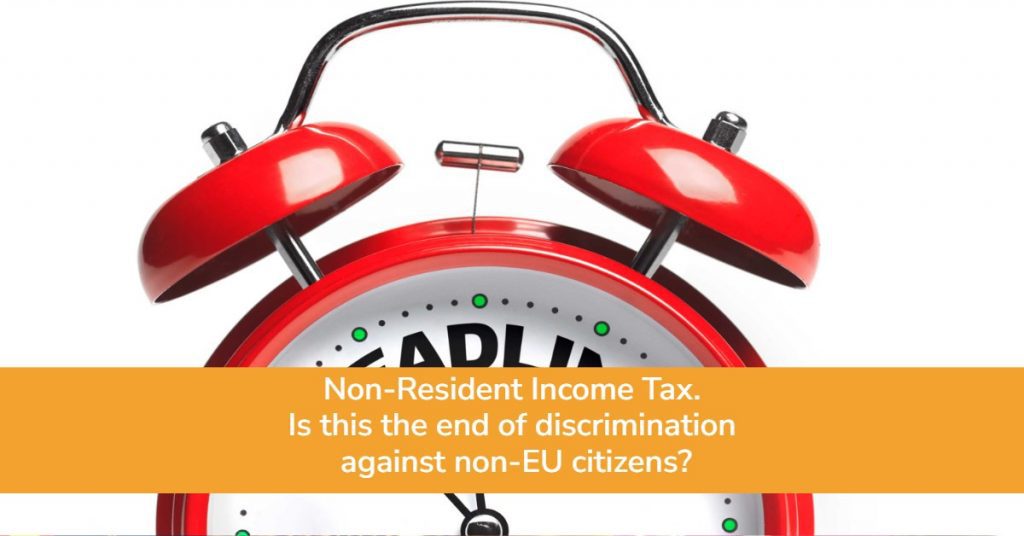In Spain, property owners must comply with several tax obligations, whether they are residents or non-residents. Traditionally, non-residents have been treated differently depending on their origin. On the one hand, citizens of the European Union (EU) or the European Economic Area (EEA). On the other hand, citizens of third countries. This distinction directly affects the amount of Non-Resident Income Tax each group must pay. And it has been a source of controversy for years. A recent ruling of the National Court seems to mark the beginning of the end of this inequality. We analyse it below.
Non-Resident Income Tax (IRNR) Types of Income.
The IRNR applies both to the ownership of properties in Spain and to the income obtained from their rental. The way the tax is calculated depends on the use of the property:
.- Second home not rented out. When the owner uses the property for personal use but does not generate rental income. In this case, the tax is calculated by applying a percentage to the cadastral value of the property.
.- Rental of properties. In cases where the property is rented (whether for short periods, as a tourism rental, or as a long-term tenancy, etc.) the income obtained is taxed at 19% for residents of the EU or the EEA, and at 24% for non-EU taxpayers. In addition, while EU/EEA residents can deduct certain expenses related to obtaining that income, non-EU citizens cannot deduct any expenses. This has always been controversial in the Spanish and European tax systems.
National Court Ruling of 28 July 2025.
The ruling is very clear: it is discriminatory that only EU/EEA residents can deduct certain expenses. Citizens of third countries (such as the U.S.) should also be allowed to do so. This decision is based on the case law of the Court of Justice of the European Union (C.J.E.U.), which understands that the effects of the free movement of capital should also extend to citizens of third countries.
Effects of the National Court Ruling: Is it the Beginning of the End?.
Although the ruling is not yet final, and may be appealed, it represents a very positive step in the right direction. Since it opens the door for non-EU citizens (such as citizens of the UK) to also deduct community fees. The Property Tax (IBI). Repair and maintenance expenses. Etc. In addition, it leaves the door open to question other discriminatory aspects. Such as the higher 24% rate compared to the 19% applicable to EU citizens. Or the 60% reduction on long-term rentals income enjoyed by resident taxpayers.
Conclusion.
The ruling of the National Court is not final, does not create case law and therefore does not guarantee that the Spanish Tax Authorities will automatically accept potential refund claims for undue payments. Nevertheless, it is a step in the right direction. At White Baos Lawyers we will remain attentive to any developments in this regard. If you are the owner of a property in Spain, our firm can help you file your Non-Resident Income Tax and, where appropriate, manage refund claims for undue payments. Do not hesitate to contact us and we will study your case.
The information provided in this article is not intended to be legal advice but merely conveys information relating to legal issues.
Carlos Baos (Lawyer)
White & Baos.
Tel: +34 966 426 185
E-mail: info@white-baos.com
White & Baos 2025 – All Rights Reserved.
